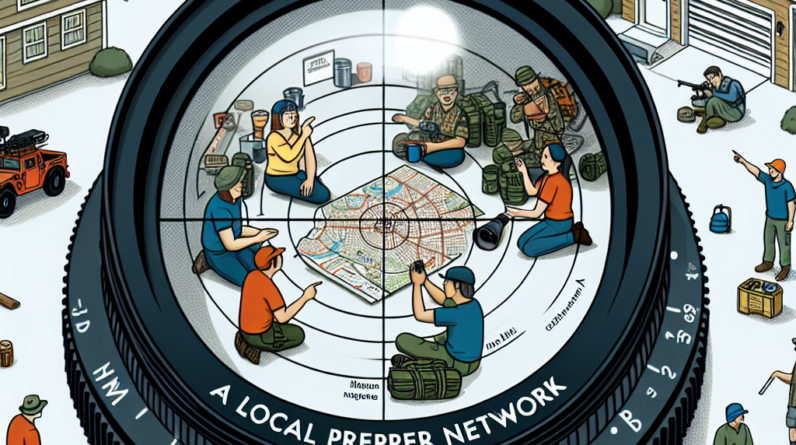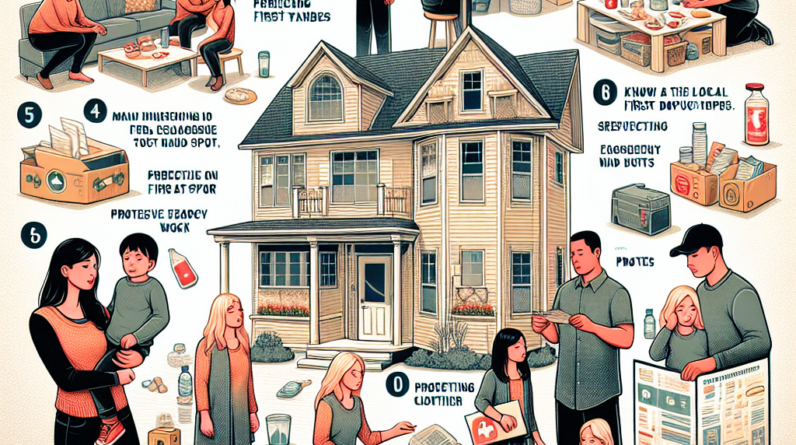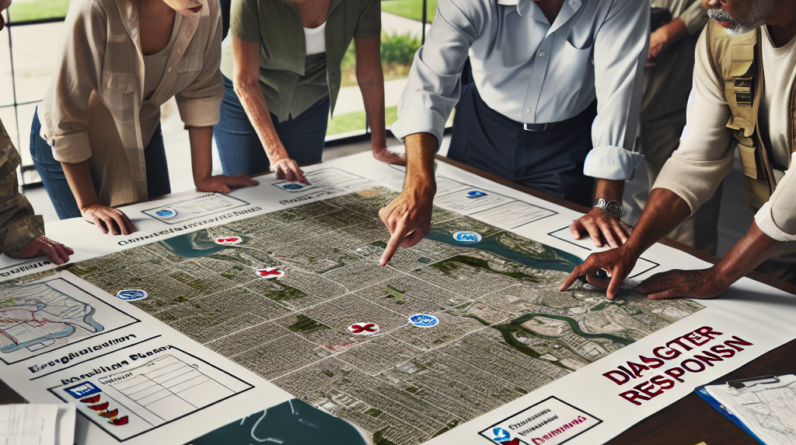
Embarking on a prepping journey often leads to the realization that collaboration and mutual support can magnify your efforts. This was the insight that led me to create a local prepper network, a decision that has brought numerous benefits through shared knowledge, resources, and skills. Below, I outline the vital steps I took to forge this invaluable community network, offering insights that can guide you in forming your own.
Identifying Local Preppers
# Networking Online
The internet is a bustling hub for individuals with shared interests, making it an excellent place to start building your prepper community. I began by joining local forums and social media groups. Platforms like Facebook and Reddit are teeming with groups focused on prepping, where members exchange tips and experiences. Active participation was key; by sharing my insights and engaging in discussions, I connected with many enthusiastic preppers nearby.
The algorithms on social media platforms can also work in your favor. As I became more active, I received recommendations for other prepping groups, expanding my network even further. The digital world is surprisingly effective in connecting like-minded individuals.
# Community Events and Meet-ups
Moving from online interactions to in-person connections was my next step. I attended local events such as workshops, lectures, and expos related to survival skills and preparedness. These events are not only educational but also perfect for meeting people with similar interests.
At these gatherings, I made it a point to engage actively—asking questions, sharing knowledge, and even bringing along my own resources. Approaching new people and initiating conversations might seem daunting, but it’s often the beginning of meaningful connections and long-lasting friendships within the prepper community.
# Local Prepper Organizations
Sometimes, joining an already established prepper organization can be beneficial. I joined a local group focused on emergency preparedness, which introduced me to a broader network of passionate preppers. These organizations often provide access to additional resources, regular meetings, and structured training sessions, enhancing the individual and collective preparedness of their members.
Being part of a recognized group also adds credibility to your efforts and can make it easier to attract new members to your network.
Building Trust Within the Network
# Transparency and Honesty
Trust is the cornerstone of any effective network. I found that sharing my objectives and being open about my expectations helped foster trust among group members. This transparency encouraged others to share their skills and knowledge, which is crucial for the collaborative environment of a prepper network.
Listening to others and acknowledging their unique backgrounds and skills enriches the group’s collective knowledge and aids in planning more effective and inclusive activities.
# Sharing Resources and Skills
One of the most rewarding aspects of our network has been the mutual exchange of resources and skills. We set up a platform for members to list available tools, books, and other useful items. Additionally, we organized skill-sharing workshops where members could teach others areas in which they excel, such as sustainable gardening or emergency medical techniques.
Sharing not only tangible items but also knowledge about local threats and resources has significantly enhanced our preparedness capabilities.
# Creating a Supportive Environment
Maintaining a supportive and non-judgmental environment is essential, especially when the challenges of prepping become overwhelming. Recognizing and celebrating each member’s contributions fosters a positive group dynamic and encourages ongoing participation and effort.
Establishing Regular Meetings
# Finding a Consistent Schedule
After establishing initial connections, I proposed setting up a regular meeting schedule to keep the group engaged. We opted for monthly potluck gatherings, which everyone looked forward to. Consistency turned our meetings into anticipated social events, strengthening bonds and ensuring steady progress in our collaborative efforts.
# Focusing on Training and Skills Development
We agreed to dedicate each meeting to a different prepper skill, keeping our sessions both informative and enjoyable. Guest speakers and hands-on activities were integral, enhancing learning opportunities and reinforcing our readiness to support each other in times of need.
# Documenting Progress and Sharing Successes
To keep the group motivated, we documented our activities and shared our successes through a group chat and social media pages. Highlighting individual and group achievements has been a great way to keep everyone inspired and committed to our goals.
Frequently Asked Questions
# 1. How do I find other local preppers?
Begin by exploring online forums and social media groups dedicated to prepping. Additionally, attend local events and consider joining established prepper organizations in your area.
# 2. What should I do if I feel nervous about joining a prepper network?
Feeling nervous is natural. Approach the experience with an open mind, and remember that everyone starts somewhere. Initially, you might prefer to simply observe and listen at meetings.
# 3. How can I contribute to my prepper network?
Contributions can range from sharing your skills and resources to volunteering for organizational tasks or leading training sessions. Every effort helps strengthen the network.
# 4. What should I bring to my first meeting?
Come with an open mind and a willingness to learn. If it’s a potluck, bringing a favorite dish can be a great way to share something personal. Also, bring any relevant resources or information you might have.
# 5. How do we maintain the enthusiasm in our local prepper network?
Regularly celebrate achievements, vary meeting topics to keep them fresh, and cultivate a supportive environment. These actions help sustain enthusiasm and foster a strong sense of community.


